- Home
- Patrick Robinson
U.S.S. Seawolf am-4 Page 3
U.S.S. Seawolf am-4 Read online
Page 3
Lt. Commander Clarke, unfamiliar with the sheer force of the ocean at this depth, grabbed the nearest intercom and yelled, “WE HAVE A MAJOR LEAK FOR’ARD. BLOW ALL MAIN BALLAST AND SURFACE, CAPTAIN. FOR CHRIST’S SAKE…” He exited the torpedo room and raced up to the conn.
Captain Crocker, surprised at the unorthodox intervention of his XO, but aware now that there was a problem, overruled his number two. “I HAVE THE CONN. PLANESMAN…BELAY THAT ORDER…TEN UP…MAKE YOUR DEPTH TWO HUNDRED FEET…”
Now in the conn, Lt. Commander Clarke could not believe his ears. Agitated, his ears still ringing from the shattering blast of the leak, he turned to the chief of the boat, the senior enlisted man aboard the submarine, now in the control room, Master Chief Petty Officer Brad Stockton from Georgia.
“Is he crazy? This submarine is sinking. We’ve got an unbelievable leak in the torpedo room. Jesus Christ! We gotta get to the surface.”
“Easy, sir,” replied the veteran master chief. “The boss knows what he’s doing.”
Linus Clarke stared at Brad in disbelief. “That water’s gonna sink us. He hasn’t seen it. I have.” And he turned as if to argue further with his captain. But the master chief grabbed his arm in a steel grip and hissed, “STEADY, SIR.”
Judd Crocker turned to his XO and quietly asked, “Did you shut the bulkhead door behind you?”
Linus Clarke hesitated, and then admitted, “Er…nossir.”
“Good,” said the CO. “Check it’s still open.”
Linus began to wonder if he could get anything right today, and moved off to check the door.
Judd Crocker turned to the combat systems officer now standing beside him, Lt. Commander Cy Rothstein, the smooth, composed intellect of the ship, known locally as “Einstein.”
“This may be quite minor, Cy,” he said. “I just want to cool it. I know a leak at depth is unnerving. But I can’t feel the pressure increasing in my ears. And look at the barometer. No change. Even if we are taking on water, the flow rate is small, the leak is small. Right now I have to conclude it’s not sinking us.
“I don’t know how bad it is down there, Cy. But the trim’s not altering significantly. I’m damn sure it’s not going to sink us in the next twenty minutes. Go deal with the problem. Aside from a lot of noise and flooding, which we seem to be coping with, there’s nothing disastrous happening…yet. So let’s not act as if there is. Because that way we might make it worse.”
“Aye, sir.”
Both men knew that only the most thorough mental preparation by the CO for all imaginable eventualities will ultimately ensure the survival of the crew. Fear is the enemy when things go wrong, because panic follows fear, and inappropriate reaction follows panic. Confusion follows that, with disaster close behind them all. Judd Crocker knew the rules. Especially the unwritten ones.
At this point Master Chief Stockton and Linus Clarke reentered the control room.
“Hi, Brad. How do we look?”
“It’s only a tube vent valve, sir. We don’t have a hole punched in the hull or anything. It’s just a matter of shutting the damn thing and then getting the water pumped out.”
“Someone make the wrong switch?”
“Guess so.”
“Schulz got it in hand?”
“I wouldn’t say that, sir. But he’s on the case.”
Meanwhile the water continued to blast through the valve and into the torpedo room, the water eventually collecting in the bilges. The engineers worked to close the valve. But the entire electric system in the torpedo room was blown, so it had to be done by hand. Which was incredibly difficult because it was so close to the steel bar of water, which was prone to knock men clean across the compartment.
However great, however small, a leak at depth in a submarine plants fear in the minds of the men who operate her. There was already, inevitably, only one word in the minds of some of them: Thresher, SSN 593, the Navy’s most advanced and complex attack submarine, which sank with all hands 200 miles off Cape Cod on April 10, 1963.
Every submariner knew the story, and in several minds there were already alarming similarities. Thresher had gone to the bottom with her entire crew within 10 minutes of incurring a major unstoppable leak in her engine room. The men of Seawolf had now been working for seven minutes, and that span of time gave them room to think about one of the Navy’s worst-ever disasters, the loss, 42 years earlier, of the top American nuclear submarine because of a leak during her sea trials in the deep submergence phase. Jesus, was this creepy, or what?
The U.S. Navy’s final report on the loss was required reading among officers and irresistible to the men. It laid the likely and primary blame on a catastrophic failure of the casting of a big hull valve that effectively left tons of water bursting every second through a 12-inch-diameter hole in the pressure hull. There was no way to shut the valve off. There was no valve left.
On that fatal spring morning in 1963, the submarine hit the bottom and broke up minutes after it first reported a problem to its accompanying warship USS Skylark. Sixteen officers, 96 enlisted men, and 17 civilian engineers perished with her. And like Seawolf, she was, without doubt, the best submarine in the U.S. Navy.
The captain too had allowed the apparition of the sinking Thresher to flicker across his mind. But being Judd Crocker, he was able to discard it almost instantly. Not so Lt. Commander Linus Clarke. “My God, sir,” he blurted. “I implore you to take this ship to the surface.”
The CO stared at his number two. “XO, take the conn. Slow down to ten knots. Clear your baffles and come to periscope depth…then prepare to surface if I so order. I’m going for’ard to inspect the damage. You have the ship.”
“Aye, sir, I have the ship.”
Judd Crocker could see that the XO’s mouth was dry, and there was a strange cast to Linus’s voice as he ordered, “Helmsman — XO. Make your speed ten…right standard rudder, come to course one-two-zero. Sonar-conn…clearing baffles prior to coming to periscope depth.”
Judd never even bothered to change into seaboots, just made his way for’ard, pondering, as all COs might do at times such as these, why Thresher had imploded and crashed to the bottom with such alarming speed: first indication of a problem 0913, slammed into the seabed 8,000 feet below at 0918.
Seawolf’s CO had always had his own private theories as to why the disaster occurred with such terrifying swiftness. First, he believed that the old method of linking alarm systems was a truly lousy idea, because one instantly triggered the next, which triggered the next, which ended up with an automatic reactor scram when the power cut out.
But the key to Thresher, according to the studies of Judd Crocker, was that she was going too slowly, creeping along 1,000 feet below the surface at only around four knots. When the valve casing burst and the reactor shut down, she had power for just a very few minutes, but she had no momentum, and she used her power revving her turbines, building speed to drive her upward virtually from a standing start. That power, Judd believed, failed when she was only 150 feet below the surface. There just was not sufficient thrust to carry her upward all the way, and she simply slid back down, gathering speed before crashing into the bottom at some 80 knots.
When he arrived at the scene of the flood he was taken aback by the noise, the apparent amount of seawater entering the ship, and the stupefying roar of the leak. Lt. Commander Schulz appeared to have the situation in hand, and he had two burly engineers, wielding wrenches, shutting the valve, soaked through, working in the dark mist in a maze of pipes and valves, fighting their way to get at the bronze fitting.
And even as he stood there, already soaked by the freezing spray, unable to speak because of the noise, he felt Mike Schulz tap him on the shoulder and, grinning, offer a silent thumbs-up.
As the valve was finally shut and the noise stopped, Judd squelched his way back to the control room and announced that the torpedo tube trials would be delayed only as long as it took to pump out the water, repair the electronics
and clean the place up. He didn’t want to get too far behind the eight ball. This section of the tests was supposed to be completed by noon the following day.
And once more he ordered a speed change, back to 20 knots, running silent, steady, without further hysterics. The way he liked it.
“Carry on, XO,” he said. “Go back down to eight hundred feet at twenty knots. I’m just going back to change my shoes. I’ll be back in five. Get someone to bring me a cup of coffee, willya? I’ll drink it while you’re changing your underpants.”
Linus Clarke had the sense to laugh.
Thursday evening. June 15, 2006.
The Pineapple Bar. Pearl City, Hawaii.
“Well, guys, we got our celebrity XO back, right?”
Chief Brad Stockton was referring to the one fact that had occurred on this day that everyone knew. Lt. Commander Linus Clarke, fresh from another six-month stint at CIA headquarters, had arrived by air from San Diego to resume his duties on Seawolf. The CO had been palpably noncommittal in his assessment of the merit of that appointment. In Chief Stockton’s view, Judd had always known that Linus would be his number two on this particular mission.
They were leaving in a few days, Seawolf having finally completed her trials. But their destination remained wrapped in secrecy. In Brad’s opinion they were heading southwest for a long way, bound for the Indian Ocean and then the Arabian Sea, where there was the usual unrest along the oil tanker routes, Iran still making veiled threats about her historical ownership of the Persian Gulf.
Among the rest of this cheerful gathering, on this warm tropical night just north of Pearl Harbor, opinion was divided. Petty Officer Chase Utley, the communications operator, thought they might be headed northwest, way up the Pacific toward the Kamchatka Peninsula, where the Russians were reportedly planning to conduct missile tests off their base at Petropavluvsk.
“Jesus, I hope the hell not,” said veteran Seaman engineer Tony Fontana. “That place is the goddamned end of the world, coast of Siberia for Christ’s sake. We’d be about ten thousand miles from the nearest bar.”
“Well, how the hell could that matter?” said Chase. “We never get out of the ship on these patrols anyway.”
“That’s not the point,” retorted Fontana. “It’s just a feeling of being at least somewhere close to civilization.”
“For civilization read Budweiser,” said Stockton, grinning.
“I’m serious,” added Fontana. “You guys don’t understand. There’s a terrible feeling…kinda desolate when you’re operating at the absolute ass-end of the world off Siberia. You just know there’s nothing there, nothing in the sea, or even on the land, ’cept for rocks and trees and shit. Something happens, you’re a dead sonofabitch, thousands of miles from anywhere.”
“You ever been up to the Kamchatka?”
“Well, no. But I used to know a guy whose cousin had been there!”
They all fell over laughing. Fontana was a funny guy who really should have gone for a career in standup comedy, or at least on television. He’d never quite advanced as he should have in the Navy, owing to a determination to be the last man to leave any party. He’d twice missed his ship, which had been regarded as a character flaw by the powers that be. But the tall, tough, Ohio-born engineer was outstanding at his job, and various COs had found a way to get him forgiven. Just as well, in the opinion of Brad Stockton. Tony Fontana had been the man who had shut the valve in the torpedo room the previous October.
At this point newly promoted Petty Officer Third Class Andy Cannizaro from Mandeville, Louisiana, arrived with an armful of beers, set them down on the table and expounded his own theory on where they might be headed two days hence.
“Shit, it’s obvious to anyone except for a bunch of morons,” he confided. “Seawolf is going to China.”
“China? Fuck that,” said Tony. “Crazy bastards will probably try to sink us. Fuck that.”
“You ever been there?” asked Andy.
“Sure. My uncle used to run a laundry in Shanghai…went broke…guy by the name of Kash Mai Chek.”
Seaman Fontana’s endless store of magnificently awful one-liners was so vast that no one could ever quite remember whether they had heard them before or not. But they always got a major laugh, mainly because they were always funny, but also because everyone liked Tony.
“Jesus, this is unbelievable,” said Andy. “Like trying to have a conversation in a nuthouse. Anyway, when we leave here I happen to know that our course is two-seven-zero, due west, and in case any of you guys are having trouble with that, it’s a direct course to Taiwan…and I guess y’all know what that means.”
“I’m not sure you’re right, Andy,” said the group’s second petty officer third class, Jason Colson. “I’m not revealing any secrets, but I can say I’ve never once heard the word ‘Taiwan’ mentioned recently.”
Jason, like Andy, was 24. But whereas Andy was actively involved in the pure movement of the submarine, watching the planes and the pressurized water systems, Jason was the captain’s writer, which essentially made him a clerk. But he was privy to a lot of information, and at a major level of secrecy, as he formally recorded and logged the actions and plans of the commanding officer of Seawolf.
If anyone at this table had the remotest idea where this next mission was going, it would most certainly have been Petty Officer Jason Colson, and he most certainly did not know.
“Well,” said Andy, “I did hear we were headed due west, not southwest. And if we hold that course we’ll run straight up one of the eastern beaches of Taiwan.”
“Christ, that’s nearly four thousand miles away.”
“Yeah, but we can knock off seven hundred miles in a day at two-thirds speed,” said Fontana. “Pushed, we can make nearly a thousand miles. Jesus, we could be on the beach a week from now, surrounded by Taiwanese pussy…slit-eyed beauties fighting to get at me. Give me that beer, Andy. I’m trying to hold myself back.”
Everyone laughed again. But then Chase Utley said quite seriously, “Do you guys really think we might be going to China? Because if we are, that really gives me the creeps. That place is damn scary. I mean, what was all that shit about in the papers last week?”
Brad Stockton, the Senior Petty Officer, the absolute focus for all interdepartmental discipline on board Seawolf, stepped into the conversation the moment it took an earnest, thoughtful tone.
“It was just the Chinese Fleet moving too close to the shores of Taiwan and firing missiles right across the landmass of the island. Just too close.”
“Yeah, but didn’t the Ronald Reagan show up and drive them off?”
“Well, it showed up. But it didn’t actually drive them off. They left of their own accord. They usually do, steaming away up the Strait, northwest away from Taiwan toward their own coastline.”
“You mean the carrier did not actually warn them off?”
“No. Not precisely. But the sight of that ship would give anyone pause for thought. Apparently the Chinese just backed right off before we got within two miles of them.”
“I thought we used to be good friends with China, back in the late nineties.”
“Well, I guess we were. But they’re hard to be friends with. They just have a totally different mindset from us. Like the Japanese, they will take, take, take. Until you stop ’em.”
“You think we might ever have to fight a war with ’em? I mean, a real shooting war?”
“I doubt it. They are damned self-interested, and they like money better than war. And they always back off if we even look like growling at ’em. But these days, you never know. They’ve been building up their goddamned Navy for a lot of years now. Three hundred thousand personnel, new ships, Russian submarines, a new carrier and Christ knows what else.”
“I’ll tell you what,” said Jason. “I was looking at a copy of the Wall Street Journal the other day and they had a front-page article on China. Some minister or other — had a name a bit like Kash Mai Chek — said som
ething dead scary. He was talking about the appearance of the big American carrier, and he was quoted as saying, ‘Do you really think the USA would trade Taiwan for Los Angeles?’ I mean, that’s bad shit.”
“It sure would be if they really could throw a ballistic missile right across the Pacific.”
“And can they?”
“Who knows,” said Stockton. “Who the hell knows.”
“I bet our XO knows,” said Andy. “That’s one mysterious guy. But he spends half his life in the CIA, and I’m told he’s officially involved with Navy Intelligence.”
“If you ask me, he ought to stay there,” said Jason indiscreetly. “I mean, did you guys tune into that shit that broke out last October?”
“You mean when he ordered the ship to the surface against the CO’s wishes when we had the leak in the torpedo room?”
“Yeah. That was one scared dude.”
“Yeah, he was scared,” said Chief Stockton. “But so was I.”
“So was everyone.”
“The CO wasn’t.”
“I bet he was. He just wasn’t letting on.”
“Well, if everyone was just as scared as everyone else, how come the CO pulled everyone together, took command, and refused to panic?”
“Because he’s the goddamned CO, that’s why. That’s what he’s trained for,” said Brad. “In case you haven’t noticed, they don’t make many people commanding officers of nuclear submarines, not out of all the thousands of guys who want to join the Navy.”
“They don’t make many XOs, either. And ours was one scared dude.”
“Right. But it was his first major incident on a deep submergence trial. You know, the guy had no idea what to expect. And he thought he might die in the next five minutes. And that tends to concentrate your head. People react differently. He’ll learn…I think.”
“Yeah, well, he might. But I sure know who I’d rather have in command.”
1625. Friday, June 16.

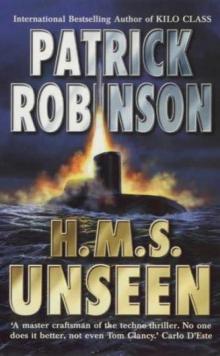 H.M.S. Unseen am-3
H.M.S. Unseen am-3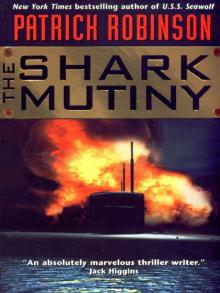 The Shark Mutiny (2001)
The Shark Mutiny (2001)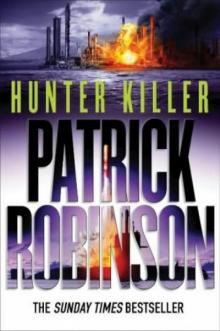 Hunter Killer am-8
Hunter Killer am-8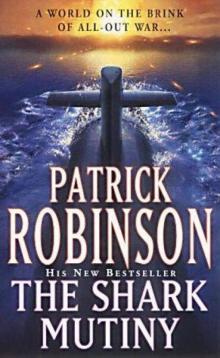 The Shark Mutiny am-5
The Shark Mutiny am-5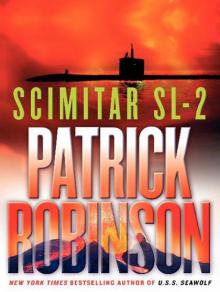 Scimitar SL-2
Scimitar SL-2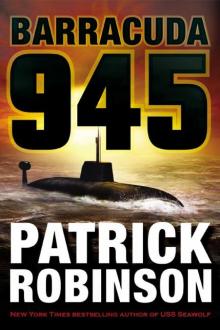 Barracuda 945 am-6
Barracuda 945 am-6 Hunter Killer
Hunter Killer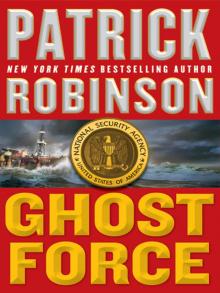 Ghost Force
Ghost Force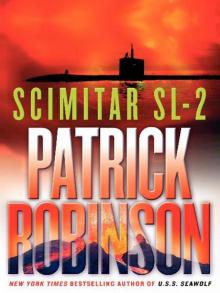 Scimitar SL-2 (2004)
Scimitar SL-2 (2004)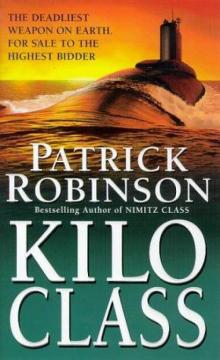 Kilo Class am-2
Kilo Class am-2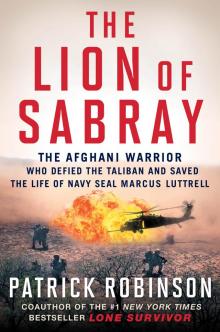 The Lion of Sabray
The Lion of Sabray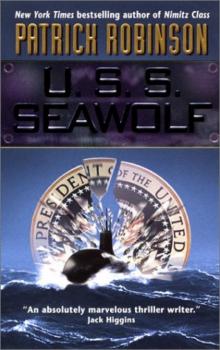 U.S.S. Seawolf am-4
U.S.S. Seawolf am-4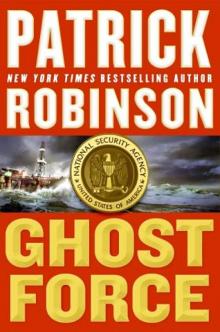 Ghost Force am-9
Ghost Force am-9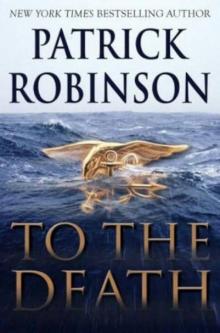 To the Death am-10
To the Death am-10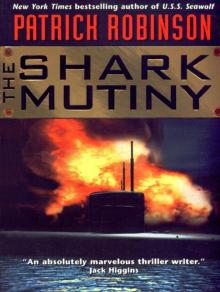 The Shark Mutiny
The Shark Mutiny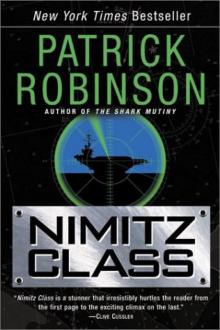 Nimitz Class am-1
Nimitz Class am-1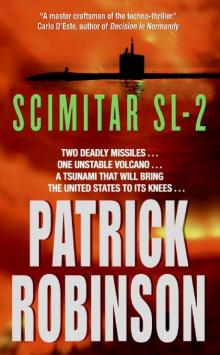 Scimitar SL-2 am-7
Scimitar SL-2 am-7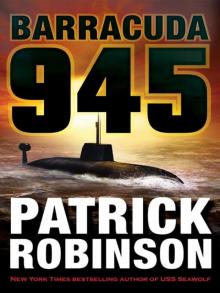 Barracuda 945
Barracuda 945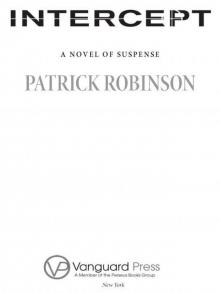 Intercept
Intercept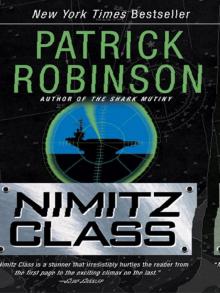 Nimitz Class (1997)
Nimitz Class (1997)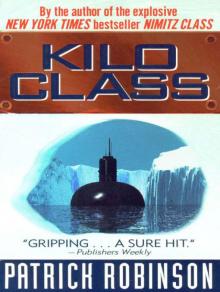 Kilo Class
Kilo Class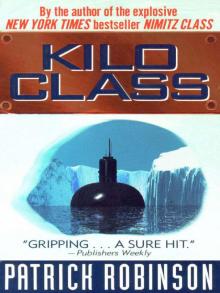 Kilo Class (1998)
Kilo Class (1998) Diamondhead
Diamondhead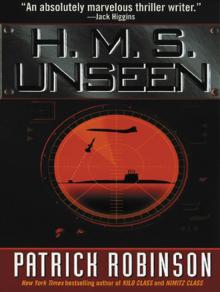 H.M.S. Unseen
H.M.S. Unseen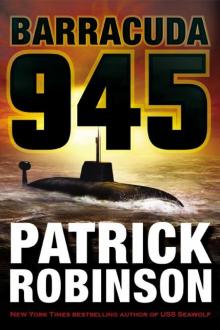 Barracuda 945 (2003)
Barracuda 945 (2003)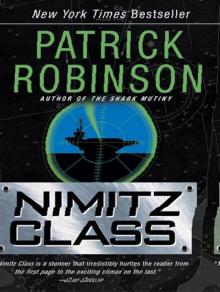 Nimitz Class
Nimitz Class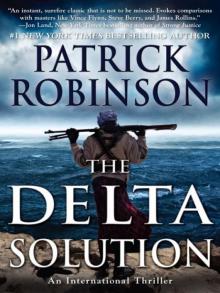 The Delta Solution
The Delta Solution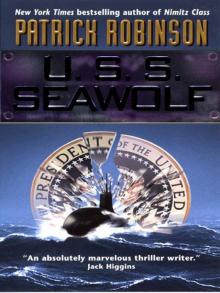 U.S.S. Seawolf
U.S.S. Seawolf